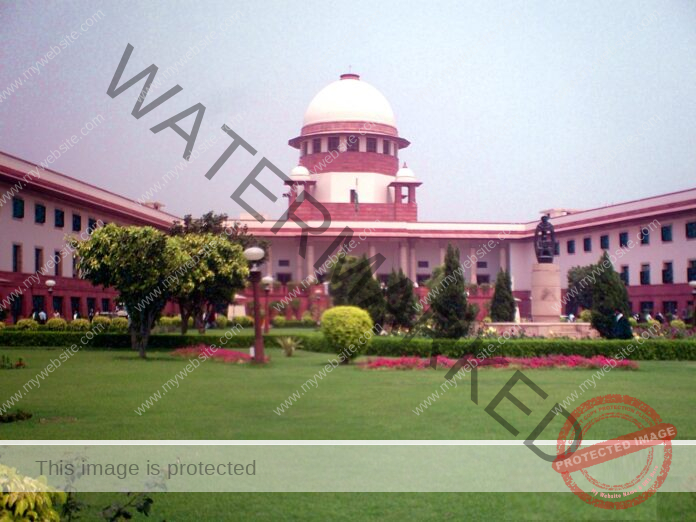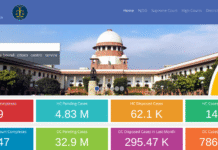Justice Bhushan Ramkrishna Gavai took over as the 52nd Chief Justice of India (CJI) on May 14, 2025. He succeeded Chief Justice Sanjeev Khanna and will serve in the capacity for the next six months when he retires on November 30 this year.
The tenure of all the 52 CJIs, which the Apex Court witnessed, has special features which many may not know.
For example the longest serving CJI is Yashwant Vishnu Chandrachud, who served for the longest tenure of a CJI ever in 75 years of the Supreme Court, since its inception in 1950. He was 16th Chief Justice of India who served for a longest tenure of an CJI ever of 7 years and 139 days between February 22, 1978 and July 11, 1985. However, shortest working tenure of a CJI was of Justice Kamal Narain Singh, who as 22nd Chief Justice of India served for just 17 days between November 25, 1991 and December 12, 1991.
In the top 10 list of longest serving CJI, Justice Bhuvaneshwar Prasad Sinha, the 6th CJI was the second longest serving CJI who worked for 4 years, 122 days in the capacity from October 1, 1959 to January 31, 1964 followed by Justice A. N. Ray, the 14th CJI, having the third longest term of 3 years, 276 days between April 26, 1973 to January 27, 1977.
Further, as per records, the 5th CJI Justice Sudhi Ranjan Das had the fourth longest tenure of 3 years, 241 days in the history of Supreme Court of India between February 1, 1956 and September 30, 1959, while Justice K. G. Balakrishnan, the 37th CJI, served for the fifth longest tenure of 3 years, 118 days from January 14, 2007 to May 12, 2010.
The 29th CJI, Justice Adarsh Sein Anand, had the sixth longest tenure of 3 years, 21 days between October 10, 1998 and October 31, 2001 followed by Justice Mohammad Hidayatullah, the 11th CJI, present on seventh spot with a tenure of 2 years, 294 days between February 25, 1968 and December 16, 1970.
Likewise, Justice Raghunandan Swarup Pathak, the 18th CJI, had the 8th longest serving period of 2 years, 179 days between December 21, 1986 and June 18, 1989 while Justice Aziz Mushabber Ahmadi, the 26th CJI had 9th longest serving tenure of 2 years, 150 days between October 25, 1994 and March 24, 1997. The 10th longest tenure is that of 38th CJI, Justice S. H. Kapadia, who served for 2 years, 139 days between May 12, 2010 and September 28, 2012.
Similarly, in the top 10 list of Supreme Court judges having the shortest tenure, the 22nd CJI Justice Kamal Narain Singh bagged the top spot with the shortest ever tenure of 17 days between November 25, 1991 to December 12, 1991 followed by 34th CJI Justice S Rajendra Babu on second spot with a 29 day tenure between May 2, 2004 to May 31, 2004 while 12th CJI Justice Jayantilal Chhotalal Shah worked in the capacity for third shortest tenure 36 of days between December 17, 1970 and January 21, 1971 respectively.
Reports revealed, the 32nd CJI Justice Gopal Ballav Pattanaik had the fourth shortest tenure of just 40 days between November 8, 2002 and December 18, 2002 followed by 49th CJI Justice Uday Umesh Lalit had the fifth shortest tenure of 73 days between August 27, 2022 and November 8, 2022.
Further, Justice Lalit Mohan Sharma, the 24th CJI had sixth shortest tenure in the history of Apex Court of 85 days between November 18, 1992 and February 11, 1993 while Justice Amal Kumar Sarkar, the 8th CJI had the seventh shortest tenure of 105 days from March 16, 1966 to June 29, 1966.
Justice Sanjiv Khanna, reports revealed, the 51st CJI had the eighth shortest tenure of 6 months and 2 days between November 11, 2024 and May 13, 2025 while Justice Bhupinder Nath Kirpal, the 31st CJI worked in the capacity for 185 days, the ninth shortest tenure between May 6, 2002 and November 7, 2002.
Justice Mirza Hameedullah Beg, the 15th CJI had the tenth shortest tenure of 1 year and 24 days between January 29, 1977 to February 21, 1978 respectively.
Since the establishment of Supreme Court in 1950, the Apex court has witnessed dynamic working of all the CJI who have steered the country’s highest judicial institution through the years. Every CJI has left a unique mark on India’s legal and constitutional landscape, shaping the country’s justice system.






























